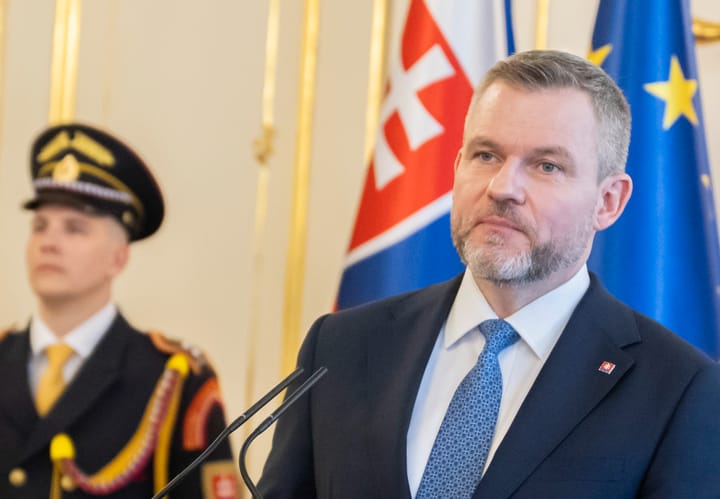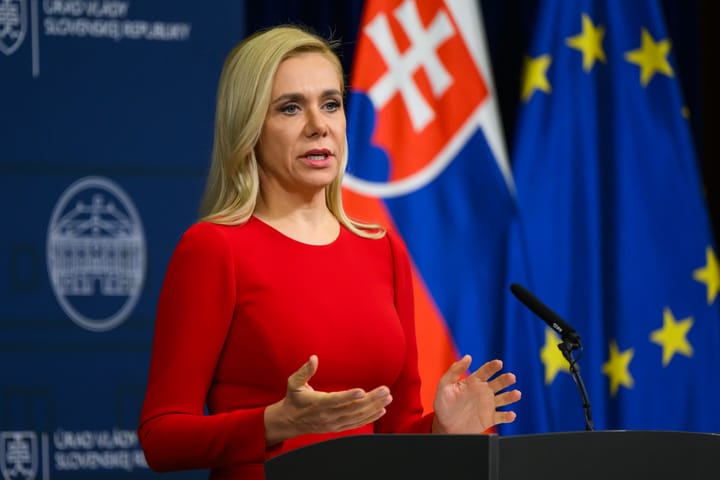Bosnia’s path into the EU is troubled by internal divisions
Bosnia and Herzegovina’s journey towards EU membership reached a milestone last December when it received candidate status. Now, the country faces its biggest political crisis since the Dayton Peace Agreement that ended the war in the 1990s.

by AFP, ANSA, FENA, HINA, STA | 25.Jul 2023 | Key Story
After the general national elections last year, Bosnia and Herzegovina (BiH) quickly established a new government and made a big step toward the European Union by receiving candidate status after many years of waiting. However, internal political issues caused institutional instability which has turned into the biggest political crisis since the Dayton Peace Agreement. It could destabilise the region and jeopardise the country’s Euro-Atlantic future.
The agreement divided Bosnia and Herzegovina into two entities: a Bosniak-Croat Federation and Republika Srpska (RS). They are connected by a weak central government.
Bosnian Serb-leader Dodik on a collision course with international envoy Schmidt
The president of the Serb-majority entity Republika Srpska, Milorad Dodik, who remains a Kremlin ally, has held enormous sway over the country’s Serb entity for years and has frequently stoked ethnic tensions.
In recent weeks, two controversial laws were signed by the Bosnian Serb president, both regarded as inflammatory political moves, which Washington said undermine the Dayton peace deal. Strong reactions also came from the Bosniak-Croat Federation as well as from Paris, Rome and Berlin.
BiH Presidency member Denis Bećirović said that Dodik “openly threatens the Dayton Peace Agreement and the independence, sovereignty and territorial integrity of Bosnia and Herzegovina, and thus peace and security”.
The first legislation signed into law by Dodik on July 7 suspends the Bosnian Serb entity’s recognition of rulings made by Bosnia’s constitutional court. The Constitutional Court of BiH (BiH CC) consists of nine judges, of which three are selected by the President of the European Court of Human Rights. The other four are selected by the Federation and two are selected by RS. Dodik is demanding that the foreign judges be replaced with domestic ones. In addition, he claims that the immovable property in RS is Bosnian Serb property and not the state’s. According to Dodik, the rulings of the BiH CC will not be applied in RS until the court is reformed.
The second piece of legislation effectively allows the Bosnian Serb entity to bypass or ignore decisions made by the top international envoy to BiH, Christian Schmidt. US Secretary of State Antony Blinken on July 8 tweeted that Dodik’s signing of a law rejecting the international envoy’s authority “violates the Bosnia and Herzegovina constitution and undermines the Dayton Accords”. The US embassy in Sarajevo called the law “a deliberate attack on the Dayton Peace Agreement.”
On July 9, both bills, which were approved by Bosnian Serb lawmakers last month, officially entered into force with their publication in the official gazette of Republika Srpska (RS).
Schmidt strongly criticised the Bosnian Serb authorities, speaking of an “attack on the Bosnian Constitutional Court” and an “attempt to threaten the country’s legal and constitutional framework, including key elements such as the decisions of the High Representative.” He added: “The political representatives of RS are trying to threaten the rule of law and create chaos. From now on all actions that violate the constitutional order of Bosnia and Herzegovina will be treated as a criminal offence. And those responsible will be prosecuted.” The new measure would allow Bosnia’s judiciary to prosecute politicians who oppose Schmidt’s orders and those of the constitutional court with punishments running up to five years in jail.
Dodik, however, appeared defiant and lashed out at Schmidt in a letter sent to the High Representative’s office on Friday afternoon. “The high representative in Bosnia does not exist and it is disgusting and illegal to misrepresent yourself,” wrote Dodik.
The Bosnian Serb leader has refused to recognise Schmidt’s authority since the position lost the backing of the United Nations due to an intervention by Moscow and Beijing.
Milorad Dodik has good relations with the authorities in Serbia and in his statements, he does not hide that he counts on the support of official Belgrade for his views, which have met with condemnation from the West. On April 24, Serbian President Aleksandar Vučić commented that he never said anything against BiH and its integrity. ” I look to preserve regional peace and stability in every possible way,” Vučić said.
On July 2, Dodik, who has long campaigned for secession, announced a possible referendum this year on the status of Republika Srpska.
Path towards authoritarianism
On July 20, the Bosnian Serb parliament passed a law to make defamation a criminal offence. Critics say the move is aimed at silencing critical voices in the Bosnian Serb entity. The US embassy in Sarajevo warned that “those who introduced and supported this repressive legislation have moved the Republika Srpska one step further down the path toward authoritarianism,” adding it was also jeopardising the country’s Euro-Atlantic future.
Is Dodik threatening Bosnia’s EU path?
The National Assembly of the RS “does not have the authority to decide not to apply the decisions of the Constitutional Court of BiH,” said a spokeswoman for the European External Action Service, adding that the vote “is therefore without legal basis” and marks “a clear departure from the expectations that accompanied the granting of EU candidate status”.
“To suspend cooperation in the achievement of key EU priorities is regrettable,” the spokeswoman continued. “The EU,” she concluded, “has consistently demonstrated that it is a loyal partner of Bosnia and Herzegovina with an unequivocal commitment to the country and its prospect of EU membership as a single, united and sovereign country.”
The leader of the Croatian ethnic group in BiH, the president of the party’s BiH Croatian Democratic Union (HDZ BiH) and of the Croatian National Assembly (HNS BiH), Dragan Čović, pointed out that the majority of the package agreed with the EU Enlargement Commissioner Olivér Várhelyi should be implemented by October. He stressed that this would include the Electoral Law as well as the reform of the Constitutional Court of BiH.
The Electoral Law has been the subject of debate for years. Croatia’s officials stressed that it is necessary to remove all provisions in the constitution that discriminate against national minorities and to ensure the equality of the three constituent nations in BiH. The Croatian representative Željko Komšić has so far been elected to the three-member presidency by the non-Croat majority in four elections.
As a result, Croats are seeking a provision in the constitution and in the Electoral Law that would make it impossible for one ethnicity to elect another nation’s representatives. This was partially supported by the High Representative who imposed an electoral reform on the eve of the election. Critics say that such moves lead to further institutional fragmentation and are aimed mainly at securing the victory of the Christian-Democrat party HDZ in the Croat constituencies.
Can EU negotiations start by the end of the year?
Last week, the EU-Bosnia and Herzegovina Stabilisation and Association Council took place in Brussels for the first time after the country was given candidate status last December. It reviewed the country’s progress.
Croatia emphasised that it was in its interest to have a functional and stable Bosnia and Herzegovina in its neighbourhood. Foreign Minister Gordan Grlić Radman said on July 19 that Croatia would advocate the opening of negotiations on BiH’s accession to the European Union by the end of this year.
Slovenian Foreign Minister Tanja Fajon said she believed Bosnia and Herzegovina was well on track after being granted candidate status last year, something that Slovenia had been lobbying hard for.
“Considering the country has formed government structures at all levels very rapidly, the fastest in its history (…), we expect now that it will implement reforms very ambitiously. The goal is that accession talks start by the end of the year,” the minister said. She added that a large part of the key priorities had yet to be met.
No EU sanctions against Bosnian Serb leader Dodik
On July 12, the European Parliament called for targeted sanctions against Milorad Dodik, who is already sanctioned by the United States and the United Kingdom, and other high-ranking officials of Republika Srpska, for secessionist actions in the country.
The report on BiH, which was approved by 530 votes to 68 with 33 abstentions, strongly denounced the ‘recurring inflammatory rhetoric and secessionist laws and policies of the RS leadership. The MEPs warned that “more than 25 years after the war has ended, the country is still facing divisions promoted by political elites and secessionist attempts” by the RS. Such actions are destabilising BiH, contradicting its EU perspective and jeopardising access to EU funding, the report stated. Finally, MEPs urged BiH to strengthen its preparation for EU accession negotiations.
However, Hungary expressed its opposition to the imposition of sanctions on Dodik. Speaking in Banja Luka on July 5, Hungarian Foreign Minister Peter Szijjarto expressed full support for the Bosnian Serb leader. “We support Dodik and stand by him for you, for the Serbs in Bosnia and Herzegovina, because you have decided that he is your president.”
***************************************************************************
The News Agency of the Slovak Republic (TASR) is a part of project called the EuropeanNewsroom (ENR). The aim of the project is to strengthen news services from various countries in Europe and to support cooperation between the agencies' international news reporters. The ENR project includes the following agencies: AFP, ANSA, Agerpres, APA, ATA, Belga, BTA, DPA, EFE, Europa Press, FENA, HINA, MIA, STA, Tanjug and TASR. Polish news agency PAP is an associated partner, while the Ukrinform agency is also participating in the project as part of the solidarity shown to Ukraine.



